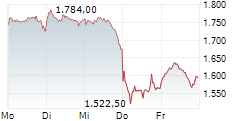Crypto Crime Reaches New High in 2024
A new FBI report shows that online crime involving cryptocurrencies in 2024 was more prevalent and costly than ever before. The agency’s reporting center received nearly 150,000 reports with losses totaling $9.5 billion. A large portion of these losses can be traced back to one particular type of criminal activity.

A new FBI report shows that online crime involving cryptocurrencies in 2024 was more frequent and costly than ever before. The agency’s complaint center received nearly 150,000 reports with a total damage of $9.5 billion. A large portion of these losses is attributable to one particular criminal scheme.
Twenty-five years ago, the FBI established the „Internet Crime Complaint Center,“ or IC3, effectively the U.S. federal police force’s reporting hub for internet-based crime.
According to the 2024 report, a total of nine million complaints have been filed so far, with the frequency of these complaints sharply increasing over time. From an initial 2,000 reports per month, the center now receives more than 2,000 per day. The past year set a new record. Victims reported total losses of $16.6 billion, mostly due to fraud. Additionally, ransomware remains an ever-present threat to critical infrastructure.
The FBI finds this record particularly alarming because „significant measures were taken last year to make it more difficult and costly for criminals to succeed.“ The agency executed a major crackdown on LockBit, one of the world’s most active ransomware operations, and since 2022 has issued thousands of decryption keys, thereby preventing $800 million in ransom payments. Yet, all this effort is just a drop in the bucket and has not been enough to slow the rise of cybercrime.
Cryptocurrencies play an almost immeasurably significant role in all this. They are “an irresistible tool for scamming investors, laundering the proceeds, and driving forward other types of illegal schemes.” This is reflected strikingly in the numbers: of the $16.6 billion in total losses, $9.5 billion involved cryptocurrencies—a sum that has nearly doubled compared to the previous year.

The most significant damages arose from “investment scams.” This category accounted for approximately 41,500 reports, resulting in $5.8 billion in losses. The broad rubric of investment scams covers nearly every trick in which a scammer lures victims by pretending to offer a lucrative investment and traps them by misrepresenting the opportunity. Like all successful scams, investment fraud primarily exploits the greed of its victims—those who believe they are landing a once-in-a-lifetime opportunity, such as earning 7% monthly interest.
It was already foreseeable earlier this year that investment scams in their various forms would continue to thrive in 2025. Other prevalent fraud schemes include the „personal data breach,“ often involving stolen private information; the „tech support“ scam, where perpetrators impersonate tech support for well-known companies to obtain private data or cryptocurrencies; and the “romance scam,” also known as “pig butchering,” in which the victim is coerced into a fake romantic relationship and subsequently convinced to invest. In nearly all of these categories, individuals over 60 now represent by far the largest group of victims.

Traditional forms of cybercrime, such as ransomware, malware, and credit card fraud, now account for relatively minor financial losses. This demonstrates how swiftly internet crime is evolving; efficient cryptocurrencies serve as a sort of catalyst by freeing criminal innovators from the hassle of dealing with more cumbersome payment methods, thereby allowing more mental energy to be devoted to inventing new fraud schemes.
In Australia and Europe
These numbers are alarming but likely represent only a fraction of total cybercrime losses. This is suggested, for example, by a comparison with Australia. In mid-2024, an authority established in early 2023 to combat online fraud issued an interim report. According to this, Australia recorded around 600,000 proven fraud cases in 2023, resulting in damages of about $2.7 billion.
By far the biggest category was investment scams, and cryptocurrencies were involved in about half of the cases. This aligns too closely with the FBI report to be coincidental; at the same time, however, the per capita damages in Australia would be many times higher than in the U.S. This suggests that the FBI report leaves a larger number of unreported cases.
For Europe, concrete figures are more difficult to determine. In its „Cybercrime Situation Report 2023,“ the German Federal Criminal Police (BKA) states that cybercrime cases have risen steadily since 2020 and notes a 28% increase in 2023 compared to the previous year. However, this figure refers mainly to hacking and ransomware, rather than fraud. Simultaneously, the BKA reports a continuous decline in fraud cases—while also noting that in more than 50% of fraud incidents, the Internet is now the crime scene.
Europol’s IOCTA Report for 2023 states that online fraud is “a significant threat in the EU, generating billions in illegal profits every year.” Investment fraud, Europol confirms, has become “the most lucrative form of online fraud.” According to Europol, fraudsters target millions of EU citizens every day, with damages already enormous and still rising. However, this report does not provide specific numbers.
The Austrian Federal Criminal Police Office, in its Cybercrime Report 2023, cites a steadily increasing number of reported cases since 2019—now more than 65,000 per year—along with a continuously decreasing clearance rate. In Austria as well, internet fraud „numerically represents the largest area of cybercrime and is largely responsible for last year’s overall increase in offenses. More than half of cybercrime offenses are fraud related.“ This is also in agreement with the FBI report.
Despite the vague, incomplete, and outdated data for Europe, there is considerable evidence that the trend observed in the U.S. is also occurring here. Upcoming reports from Europol, the BKA, and other authorities will likely, much like the FBI’s, set new records for online fraud involving cryptocurrencies.

































































,regionOfInterest=(935,400)&hash=152a82b2d6222b93c57755423466bf56d48f8116c54e7f9a531a39001e52a182#)
